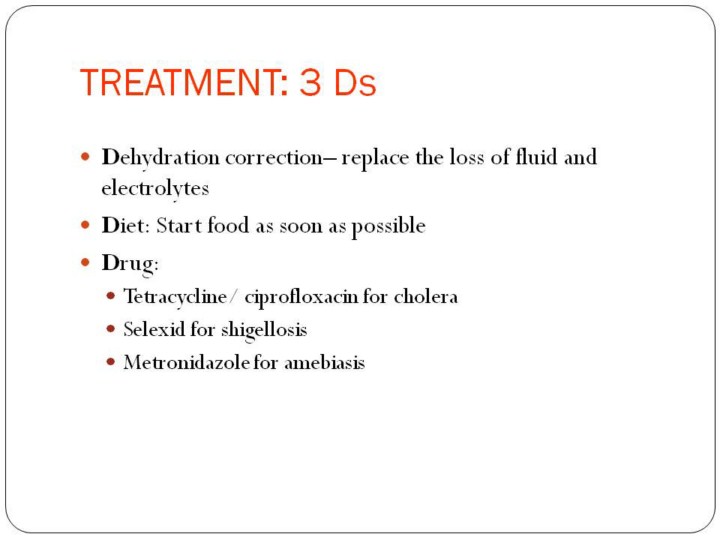 |
Rehydration is the correction of dehydration. Salts and water are lost
during diarrhea. These can be replaced by oral rehydration salt (ORS) or
intravenous fluids, based on the type of dehydration. Mild and moderate
dehydration can be managed by ORS. Severe dehydration should be treated with
IV solution.
Mutiple antibiotic resistance is a growing problem in many countries.
Therefore, antibiotics should be chosen according to the sensitivity pattern
of the organism.
Food should be started as soon as the patient can eat. Complete withdrawal
of food during diarrhea is not recommended. Breastfeeding should be
continued throughout the course of diarrhea. Extra protein intake is needed
during and after some diarrheal diseases, for example shigellosis.
|
